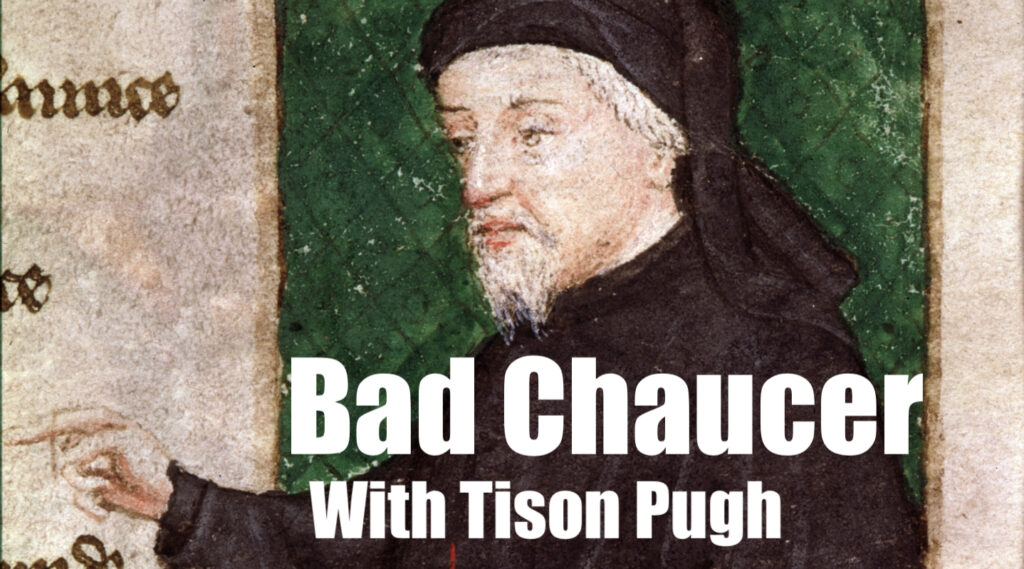Sauer, who cautions that his chronological arrangements “shouldn’t be taken too literally,” terms the results of his multidisciplinary triangulation a “deep history,” one that “doesn’t use dates or names, sketching out instead a feasible scenario that could have gone along these lines.” But his approach does lead him to conclude that there are “universal moral values that all people share with each other.”
Thinkers who see morality as having been constructed are often supposed to have trouble accounting for the possibility of moral progress. What is progress, after all, if not swapping error for a timeless truth? The anxiety induced in us by genealogical reflection comes, in large part, from having to accept that what we’d taken to be an eternal verity might be a fairly recent product of human history, biological and social. If our moral commitments don’t rest on deeper truths, how can we hope to resolve the conflicts that continue to divide us? Sauer’s perspective here is notably sunny. He sees a possible future in which our values do not so much converge as reveal themselves never to have really diverged in the first place.
“In reality, it is simply not true that, at the most fundamental level, different cultures have different values,” he argues. Widely shared values, as revealed by the World Values Survey, include “personal safety and freedom, care and tolerance, happiness, autonomy and self-fulfilment.” Distracted by our seeming divisions, he writes, we can forget the fundamentals: “We all share the same history of morality; our political disagreements are often shallow; underneath them are deep-seated, universal moral values that all people share with each other, and that can be the basis for a new understanding.”
Can such optimism be justified? Other genealogists of morals—notably Nietzsche—doubted that moral beliefs could long retain their grip after we’d learned how they arose. Nietzsche’s genealogy, needless to say, was a more impressionistic affair, and didn’t reach back to any evolutionary savanna. Instead, he was interested in the shift from the values of antiquity (focussed on heroism, worldliness, power) to those of the Christian early Middle Ages (focussed on humility, renunciation, compassion, and sin). For Nietzsche, this shift was almost entirely to be deplored. The older ethics, a “master morality,” had been replaced by something—a “slave morality”—motivated principally by the hatred, resentment, self-assertion, and wishful thinking of the slaves, who sought to transform the necessities of their situation into virtues. It’s no surprise that the meek of the world were drawn to a philosophy that promised them they would inherit the earth.
If Nietzsche was right, altruism comes from selfishness, humility from arrogance, love from hate. And the success of the moralization process was to be found in the fact that it made these tawdry underpinnings invisible. Exposing these origins, in turn, was bound to sap our faith in the modern ideology of good and evil. The question is whether the pedigree that Sauer lays out will prove less discomfiting. “In the cold light of day,” he asks, “will the uncomfortable truth shatter our confidence in our values? Will it show that our morality can stand up to closer scrutiny?” He plainly thinks that it can—or, at least, that quite a lot of our morality will survive, and, indeed, that understanding its origins may actually strengthen our confidence in it. In taking this attitude, he disclaims “the hyperbolic polemics that are part of Nietzsche’s own entertaining, but bad, habits” and chooses, instead, the optimism of a very different thinker, the eighteenth-century Scottish philosopher David Hume.
Take an institution that demands absolute allegiance to its laws, such as the nation-state. People throughout history, especially those who have been the targets of state violence, have wondered whether we owe this entity our allegiance at all. One way to answer the question “Why obey the law?” is to explain why the law exists in the first place—to address the question “What’s it for?” Hume saw that the question could be asked with equal force about the moral law. It was perfectly reasonable to inquire after the point of it, to try to figure out its function. But, unlike Nietzsche, he thought that doing so was unlikely to turn us against it.
Hume’s strategy was to invite us to imagine a world before morality—or, specifically, before human beings came to value such qualities as justice or to care much for property rights. We were to suppose that human beings in these very ancient times had a basic psychology much like ours—self-interested but capable of sympathy—and needs much like ours: to be fed, housed, and protected from random violence. Should we be surprised that they would have come up with something like the concept of justice—that is to say, principles setting out who owes what to whom? Surely, it was only natural that they would count it a good thing if you were the sort of person who told the truth, kept your promises, paid your debts, didn’t take other people’s stuff without asking, and did your share of the dishes.
One might say that the concept of morality here is a construction, or that, as Hume put it, the virtue is “artificial.” But so what? Artificial doesn’t mean unreal or without authority. The rules of morality, even as Hume conceived of them, are no less real or authoritative than other things we have also made up: traffic lights, norms of etiquette, the principles of grammar. Discovering that the rules in question are there for a reason, far from shattering our respect for their authority, may serve to reinforce it.
Stories like Sauer’s are inheritors of Hume’s confidence. The point of these evolutionary narratives is not to show morality to be in any serious way problematic; it’s to show that morality has a function. Sauer, accordingly, enlists the evolutionary history of morality on behalf of what, in much of the twentieth century, seemed a quaint and outmoded notion: moral progress. “There seem to be mechanisms between the generations that have the potential gradually to improve human morality,” he writes. “Progress is always possible and often tangible.”
Sauer wrote his book in German—Jo Heinrich’s English translation preserves the deadpan quality of the prose—but it is not, in any stereotypical way, Germanic. Much of the book’s bibliography consists of works in English, and the books he cites as authoritative are nearly all recent works in psychology and the social sciences. He finds little to interest him in imaginative literature or theology. Sauer’s optimism seems almost to be intended as a rebuke to the dour ideal of intellectual seriousness that runs from such canonical thinkers as Arthur Schopenhauer in the nineteenth century to Theodor Adorno in the twentieth.
Still, toward the end, he briefly entertains some challenges to his expectation of halting but reliable moral progress across the generations. The conditions in which our morality evolved, he notes, equip us well for coöperation within small groups, but how can we orchestrate coöperation “on a scale that encompasses all of humanity, and includes generations living far into the future?” The challenge of climate change is one of several we face now that show that problem to be more than theoretical.
His answer is equivocal, and sits uneasily with the optimism that has preceded it: “This is the first time we have faced this task: we do not know if we are capable of doing it.” The note of uncertainty is welcome in a text marked by its confidence in cutting-edge evolutionary biology and social science.
To be sure, the curtains are soon drawn on this less inspiring view. Sauer’s tone of reassurance prevails, grounded in the thesis that our divisions rest on a more or less shared moral system. We’d been wrong to worry that morality lacked foundations. The facts on which moral judgments depend are not themselves up to us. We can’t choose not to be social animals. Nor could we decide tomorrow to adopt the social structures and psychologies of the bumblebee or the arctic fox. Although Sauer’s picture of morality has no room for moral facts as God’s laws, it finds another respect in which they might be objective nevertheless. The ethical facts are what they are because we are who we are.
If some societies weigh our shared values differently, he says, that’s because of “socio-economic differences and not radically divergent morals.” The same is true, he suggests, for polarization within societies. It’s simply a matter of “group identities” assuming outsized importance: “We don’t disagree—we just hate each other.” Given the basic psychological structures we’ve all inherited, he contends, “there is an underestimated potential for reconciliation that is hard for us to see,” but which may be sustained by “a silent majority of reasonable people” who reject the ideological extremes. The book ends with a vision of “feverish discord and hatred” replaced by a “feast of calm and community.” Evidently, we can put aside our superficial moral differences and reach these sunlit uplands by reminding ourselves of how we came to have the values we have.
Will the story do the trick? Several ancient epics would be a lot shorter if all it took to reconcile the feuding brothers was a reminder of their shared lineage. Unfortunately, our origin stories don’t tell us how to resolve any particular ethical dispute. The essence of such disputes, as with the fratricidal wars of the ancients, is that they are between factions who share the same psychology, the same history, the same aspirations. The history that made us into creatures capable of coöperation also gave us the capacity to hate one another in the aggregate, to draw sharp lines dividing the in-group from the out-group. Sauer’s book may cast a gloomier light than he acknowledges. Our capacity for endless conflict may be just as much a part of our inheritance as is our ability, every now and then, to get along.
In Sauer’s final chapter, which deals with the moral (or “moralistic”) developments of the past five years, one can find some reasons for pessimism. In the standard picture of moral progress, popularized by philosophers such as Peter Singer, morality advances when we expand the circle of our concern beyond the narrow original in-group of family or clan. The welfare of human beings from other tribes and nations starts to count, too. We even begin to extend our moral concerns beyond the human, newly troubled at the thought of factory farms that made possible the cheap burgers on which we once cheerfully gorged.
Yet that vaunted expansion itself creates a new out-group, the deplorables who, say, persist in voting against greater immigration or who won’t sit quietly and eat their tofu. In other words, we learn to define the out-group—the people we don’t have to care about, rather like the orcs in a fantasy video game—by its moral failings. The in-group is diverse in terms of race and gender, but morally homogeneous. It wasn’t so long ago that American progressives on social media, weighing in on the #PandemicOfTheUnvaccinated, would occasionally betray a grim sense of satisfaction that the red-county orcs were getting their comeuppance.
Does that mean that real moral progress can come only if we give up on moralism? That’s too easy. When the much derided moralism of our times relaxes, the newly emancipated deplorables will focus their ire on the do-gooders of the previous generation, their detested out-group. Some visions of moral progress look forward to a world in which the in-group/out-group distinction has vanished. The real lesson of Sauer’s genealogy may be that we’re just not built that way. ♦


